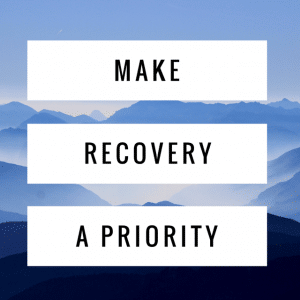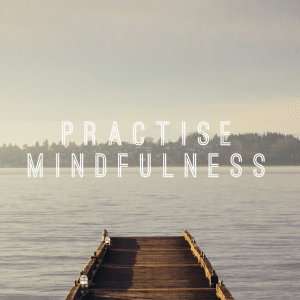1. Make recovery a priority:
This may mean taking a break from normal life. A year out. Recovery takes a lot more energy and effort than you may originally think. It needs to be right up your priority list. Time off work, school, certain friendships, travelling, exercise. Whatever it takes, this is important for this season.
2. Find yourself again:
What do you like to do? It’s often hard to know what things make you, you. The busyness of life gets in the way of our identity.
Book out some time to find you again. Try some activities you used to enjoy. Often creative projects can be a useful part of recovery. Maybe photography, baking, sewing, painting, collage, scrap booking, gardening, I love the phrase “Find what makes you come alive, then go and do it”.
3. Mindfulness:
Sitting in silence and paying your full attention to your breath and body can help you bring an awareness of your thoughts and feelings. This practise helps you let go of the unhelpful thoughts and be more compassionate to yourself. Practising letting thoughts go in your mindfulness practice will enable you to take this into everyday life so when an unhelpful thought comes along you are in a better place to acknowledge it, but not to act on it.
4. Value yourself :
Take time to look after your body: nutritionally and physically. Some self care time in your week can make a real difference and can remind you that you are important and worth looking after. For some people an eating disorder can be a form of self neglect and may have some punishment aspects to it. Creating the emphasis on it being good to care for yourself and give yourself pamper occasions helps build self esteem and love for your body.
Some ideas: A long bath, a manicure, pedicure, haircut, moisturising your body, shaving. Taking time to tidy your home, buy yourself flowers or something nice to look at each day, light candles in the evenings.
5. Fuel your body:
The right fuel at the right times of the day is vital. This may mean going against your feelings and thoughts, but with repetition a routine will evolve and habits will form.
It is likely your have no idea what normal eating should be for you now. Plan out 3 meals and 3 snacks a day with general timings to stick to if you can. There will always be days things don’t fit into your plan, that is also part of normal eating! For more advice take a look at my healthy eating in Anorexia post.
Go for as much variety as you can. There is no perfect meal plan, it’s all about making small steps and challenging yourself as often as you can.



